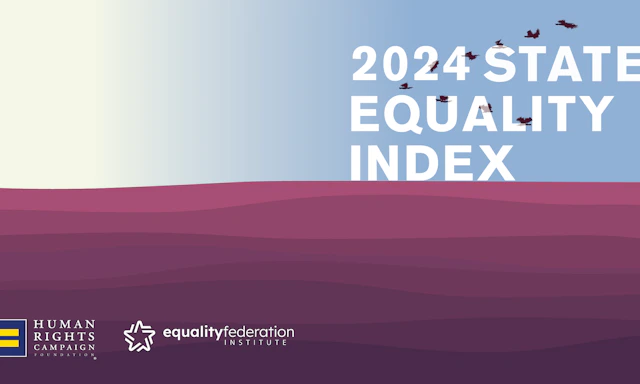
Municipal Equality Index 2025
The MEI examines how inclusive municipal laws, policies, and services are of LGBTQ+ people who live and work there. Cities are rated based on non-discrimination laws, the municipality as an employer, municipal services, law enforcement and leadership on LGBTQ+ equality.

The 2025 MEI is the fourteenth annual edition and rates a total of 506 cities on 49 different criteria from every state in the nation. The MEI is the only comprehensive nationwide assessment of LGBTQ+ equality in the areas of municipal policies, laws and services.


